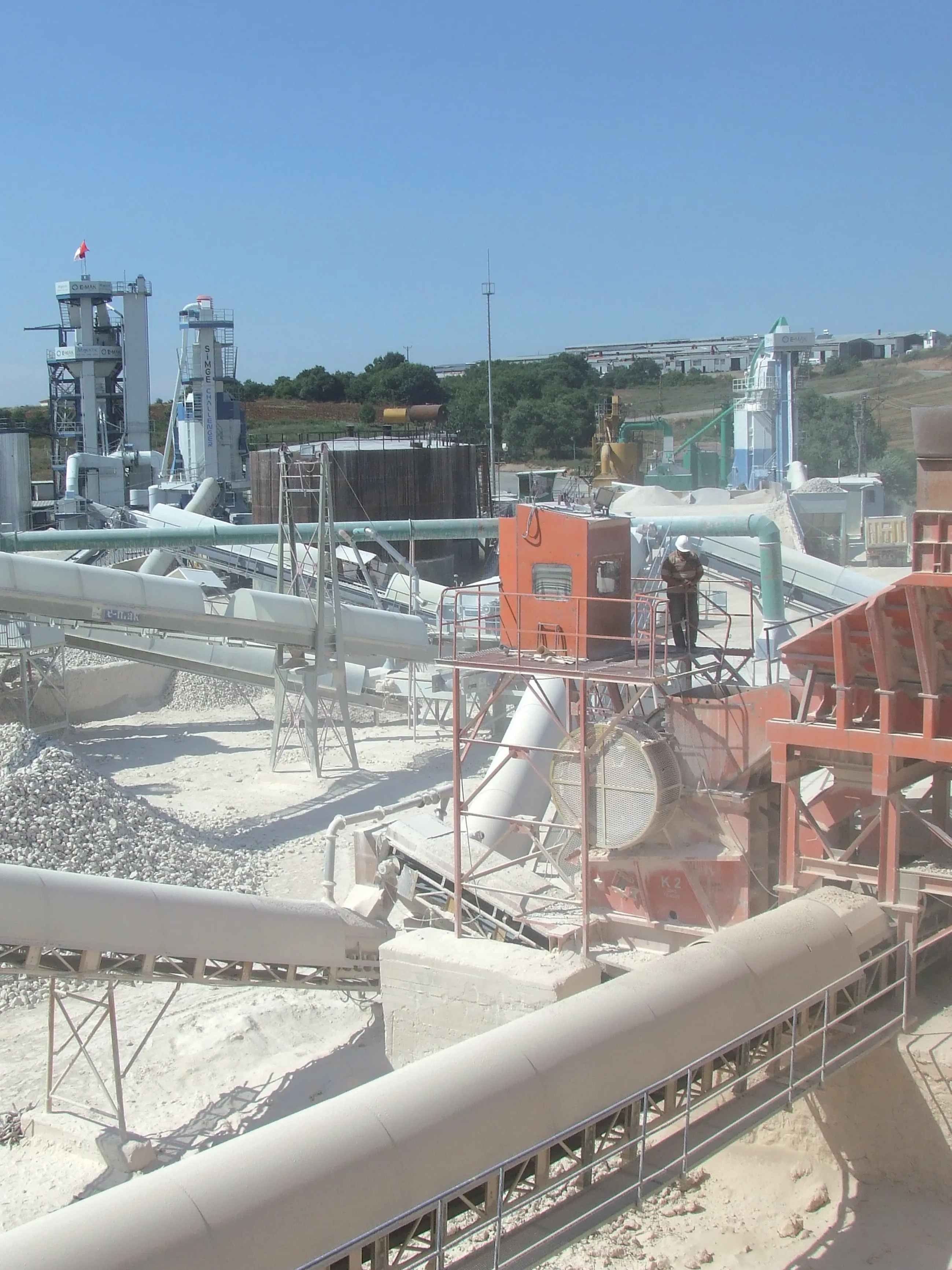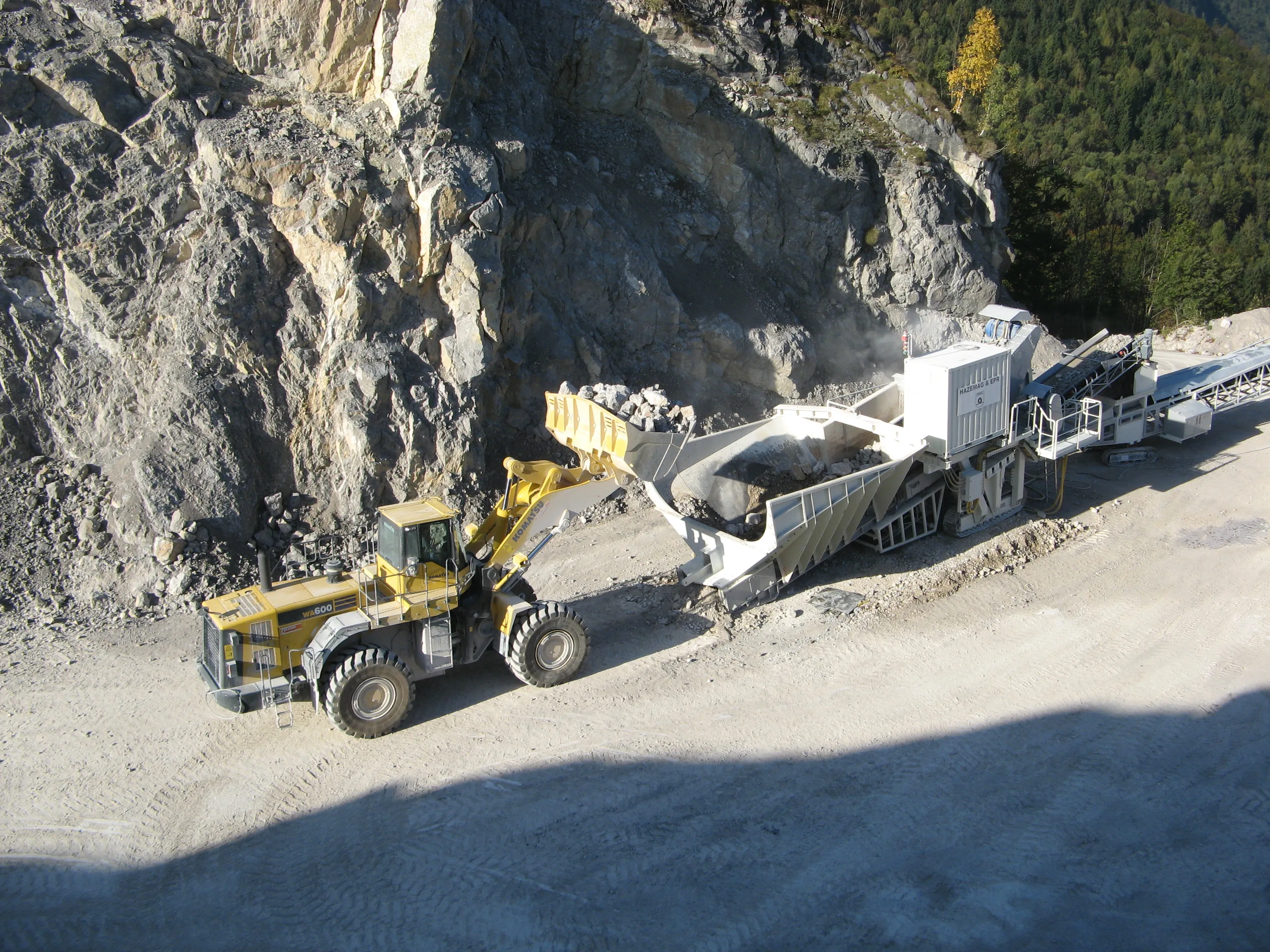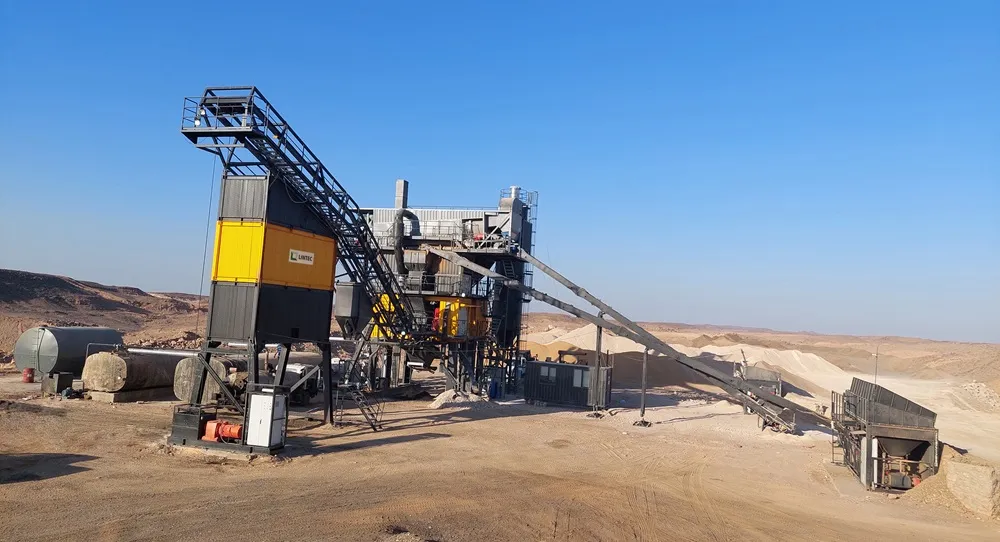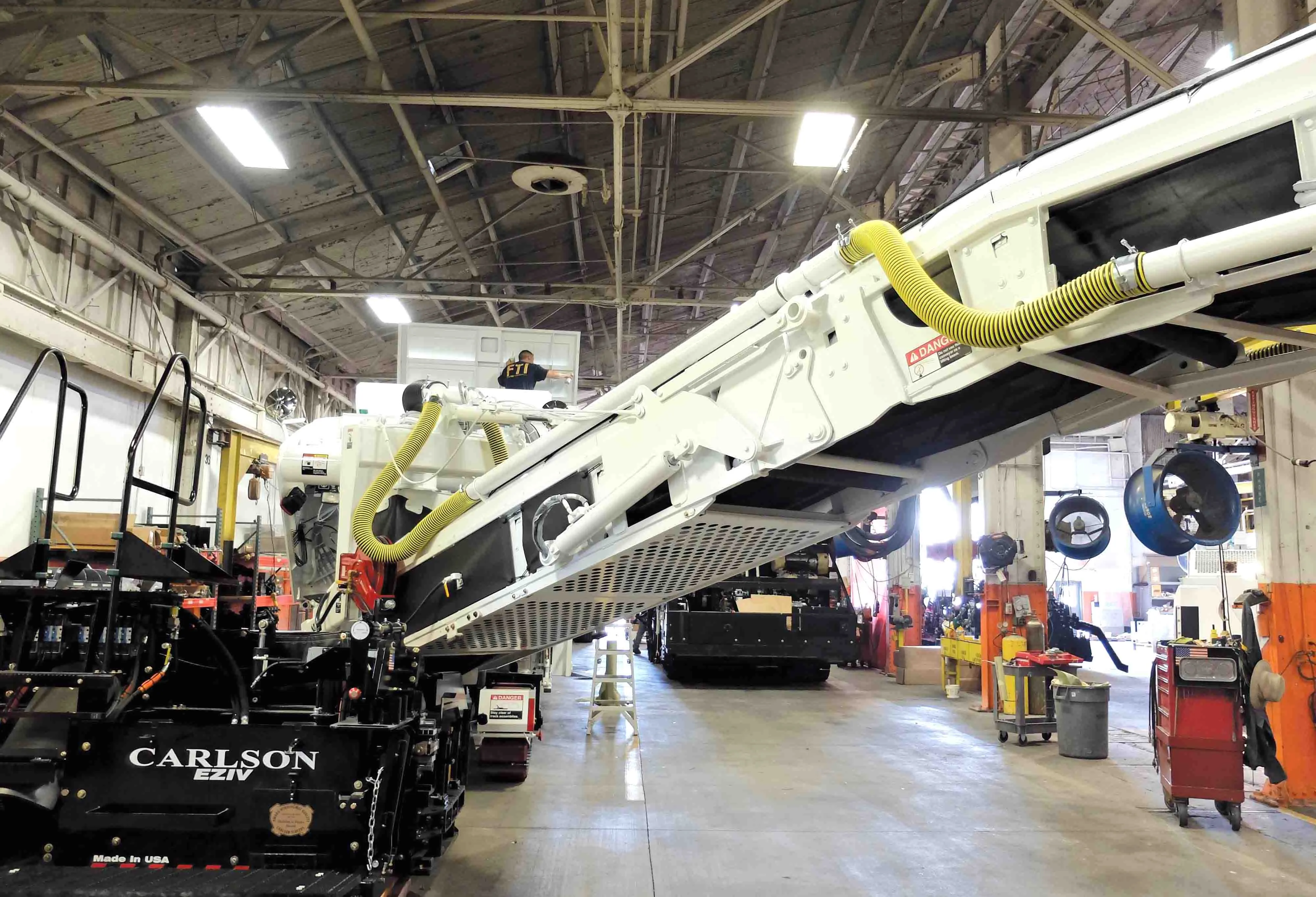The 1280 Simge Group operates a massive and highly modern quarrying operation close to the Turkish city of Bursan, which provides a major supply of aggregates and asphalt to the country's highway construction sector. This quarry produces around 4 million tonnes/year of crushed limestone and is the largest of the five quarries the Simge Group runs in Turkey, which have a combined output of 12 million tonnes/year. The huge site has an asphalt output of 500,000tonnes/year, again a significant portion of the 1.2 million tonnes/year the Simge Group produces. However, asphalt production is set to increase with the commissioning of a sophisticated new plant at the quarry with an output of up to 320tonnes/hour, twice that of the earlier generation 160tonnes/hour plant installed earlier at the site.
Peak production for the quarry runs from March - November, during which output hits 2,000tonnes/hour. Quarry manager Yavuz Küçüközel said, "We blast 3-4 times/week." Some 40 blastholes are drilled using an 161 Atlas Copco Roc D7 rig to around 12m deep and on a spacing of 2.5-3m as required for each round. The explosive used is a conventional ANFO type and sequential delays are used to reduce noise and vibration, with each shot yielding around 12,000tonnes each. The benches are 12m high and there are four working faces, with the production planned to ensure a consistent grade of material flowing through the crushing plant. As the quarry is not close to an urban area this makes blasting easier, while the Simge Group meets the needs of the authorities by having the police ensure that the paperwork is correct and that the security requirements are met before each blast.
The quarry uses a mix of machines for loading and stocking with excavators from 178 Caterpillar, 233 Hitachi, 2300 Komatsu and 359 Volvo CE and wheeled loaders from Caterpillar, Komatsu and Volvo CE. Although Küçüközel is not involved in the purchase decisions for the make of machines used on site (this is carried out by the Simge Group's purchasing department), he did say that he favours equipment from the leading suppliers. Küçüközel tells the purchasing department when a piece of equipment is required, which then negotiates a deal. However Küçüközel did say that low fuel consumption is one of the firm's priority buying requirements, along with reliability, durability and good service back-up from the dealer. This is because fuel taxes are high, resulting in even commercial diesel costing e1.5/litre.
The blasted stone is then carried by tipper truck to the tipping points and Ali Sevimilis, sales coordinator at the Simge Group explained that the size reduction system starts with the three primary crushers from other manufacturers, while the conveying, secondary and tertiary crushing and screening is carried out with equipment supplied by the Simge Group's E-MAK manufacturing arm. The two asphalt plants are linked to two of the E-MAK Challenger aggregate systems, while the Simge Group intends to add a Ratek recycling system to the new asphalt plant, so as to capitalise on the potential for recycled asphalt. It is worth noting that the new 320tonne/hour asphalt plant complies with European regulations on emissions and is heated by liquid natural gas, to maximise its efficiency. Meanwhile the plant also features sophisticated electronic controls, with a single operator able to control output through the entire system.
A high percentage of the quarry's output is aimed at road construction, so material demand and specification trends are important issues for the Simge Group. As Turkey has some 43% of the world's limestone reserves, aggregate costs are comparatively low at around e2.5/tonne. But the country's bitumen costs are high so asphalt recycling is becoming more of an issue in Turkey. It was this factor that encouraged the Simge Group's E-MAK manufacturing arm to develop its innovative Ratek recycling system, which is designed to operate in addition to a conventional asphalt plant. And with the Simge Group running its own quarries, the firm is in the fortunate position of being able to fine tune its technology in the field.









